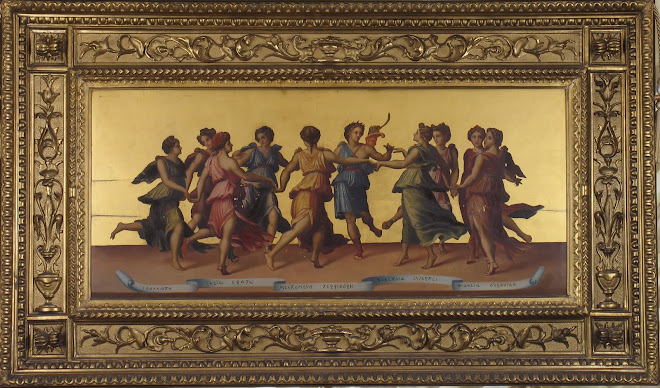A Little Neo-Platonism from the Bard:
from Henry IV, part 1:
No, no, I am but shadow of my Self.
You are deceiv'd, my substance is not here!
Sonnet 53
What is your substance, whereof are you made,
That millions of strange shadows on you tend?
Since everyone hath every one, one shade,
And you, but one, can every shadow lend.
Describe Adonis, and the counterfeit
Is poorly imitated after you.
On Helen's cheek all art of beauty set,
And you in Grecian tires are painted new.
Speak of the spring and foison of the year;
The one doth shadow of your beauty show,
The other as your bounty doth appear,
And you in every blessèd shape we know.
In all external grace you have some part,
But you like none, none you, for constant heart.
Sonnet 43
When most I wink, then do mine eyes best see,
For all the day they view things unrespected;
But when I sleep, in dreams they look on thee,
And, darkly bright, are bright in dark directed.
Then thou, whose shadow shadows doth make bright—
How would thy shadow's form form happy show
To the clear day with thy much clearer light,
When to unseeing eyes thy shade shines so?
How would, I say, mine eyes be blessèd made
By looking on thee in the living day,
When in dead night thy fair imperfect shade
Through heavy sleep on sightless eyes doth stay?
All days are nights to see till I see thee,
And nights bright days when dreams do show thee me.
and from Julius Caesar (Cassius to Brutus):
It is very much lamented, my lord,
That you have no such mirrors as will turn
Your hidden worthiness into your eye
That you might see your shadow.
from Richard II:
Richard: Mark, silent King, how soon my sorrow hath destroyed my face.
Bolingebroke: The shadow of your sorrow hath destroyed the shadow of your face.
from Richard II:
O flatt'ring glass,
Thou dost beguile me! Was this face the face
That every day under his househod roof
Did keep ten thousand men?
from Henry IV, Part 1:
The King himself, who grieves at heart
So many of his shadow thou hast met,
And not the very King.
© 2009-2010 BardTalk
Copyright Notice:The content on this website is the property of BardTalk; it is not to be copied, reproduced, or transmitted in any form, by any means, in whole or in part, nor is it to be used for any purpose other than that for which it is expressly provided without the written permission of BardTalk.
from Sonnet 38:
Be thou the tenth muse, ten times more in worth
Then those old nine which rhymers invocate,
And he that calls on thee, let him bring forth
Eternal numbers to outlive long date.
Wednesday, March 18, 2009
On the Subject of Shadows
Labels:
Bard,
Image,
Mirror,
Neo-Platonism,
NeoPlatonism,
Platonic Ideal,
Reflection,
Shadow,
Shakespeare

